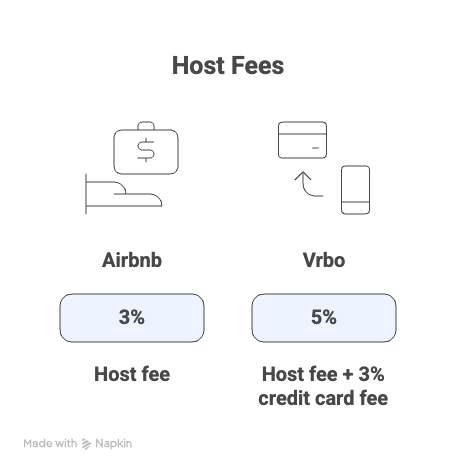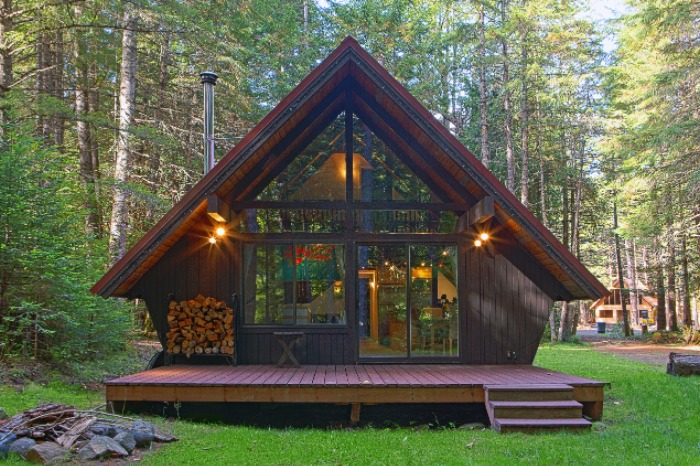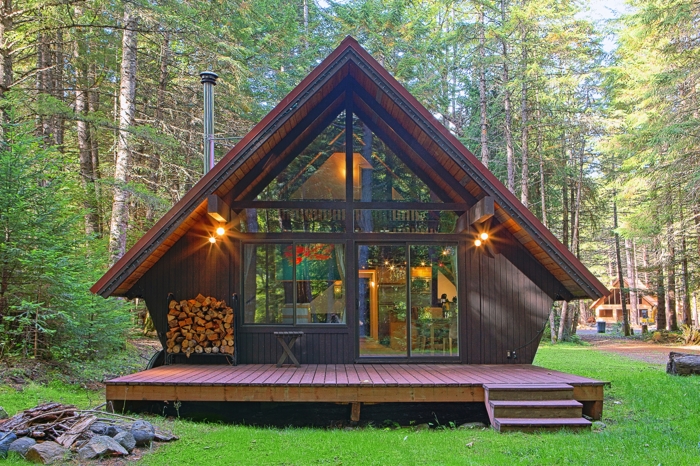As a vacation rental host, choosing the right platform can make or break your business. The short-term rental industry is booming, and two giants—Airbnb and Vrbo—dominate the market. But which is better for hosts? At 10XBNB, we’ve mastered the art of rental arbitrage and vacation rentals, helping thousands of hosts maximize profits.
This Airbnb business page breaks down the key differences between Airbnb and Vrbo, answering critical questions like fees, guest demographics, and listing strategies to help you decide. Let’s get you more bookings and higher profits.
Introduction to the Short Term Rental Industry

The short term rental industry has transformed the way people travel, offering a flexible alternative to traditional hotel rooms. Platforms like Airbnb and Vrbo have empowered property owners to rent out their homes, apartments, and unique spaces to guests from around the world. This shift has opened up new opportunities for both airbnb and vrbo hosts, making it possible to generate income from properties that might otherwise sit vacant.
As the short term rental industry continues to grow, competition among hosts has intensified. Many hosts are now looking for ways to stand out, attract more bookings, and deliver memorable experiences to their guests. Understanding the key differences between Airbnb and Vrbo is essential for anyone looking to succeed in this space. While both platforms offer robust tools for managing properties and engaging with guests, they cater to different audiences and provide distinct hosting experiences. By choosing the right platform—or leveraging both—hosts can maximize their rental income and build a thriving vacation rental business.
Understanding Airbnb and Vrbo: The Basics
Airbnb, founded in 2008, revolutionized travel by offering everything from shared spaces to unique accommodations like treehouses. Airbnb’s market position is defined by its broad appeal and innovative approach, providing users with a wide range of unique property offerings. While Airbnb focuses more on urban markets, Vrbo prioritizes vacation areas and family groups, catering to different types of travelers.
With 7.7 million active listings worldwide as of 2024, Airbnb caters to a diverse crowd—budget travelers, luxury seekers, and business professionals. Its urban focus makes it ideal for hosts in city markets.
Vrbo, established in 1995, specializes in vacation properties and full-property vacation rentals. Vrbo focuses exclusively on property rentals, boasting over 2 million listings. Part of the Expedia Group, Vrbo attracts families and larger groups seeking vacation homes in scenic destinations. Unlike Airbnb, Vrbo doesn’t allow shared spaces, ensuring privacy for vrbo guests.
Both platforms offer user-friendly interfaces, but their approaches differ. Airbnb emphasizes local experiences, while Vrbo’s platform is focused solely on property rentals, without offering additional activities or curated local events. For hosts, understanding these foundations is step one to picking the right fit.
Key Differences in Hosting on Airbnb vs Vrbo
When comparing Vrbo vs Airbnb for hosts, several factors stand out: fees, guest demographics, and platform features. Understanding the target audience of each platform is crucial for hosts, as it helps tailor listings and marketing strategies to attract the ideal guests. Let’s break it down, including how renting out your property and managing bookings differs between these platforms.
Fees and Pricing Structures
Airbnb charges hosts a 3% commission per booking, though this can vary. Guests pay a service fee of up to 14.2%, but Airbnb offers a host-only fee model where hosts cover the entire service fee, reducing costs for guests. This flexibility can attract more bookings, while Vrbo maintains a more standard fee structure where guests and hosts share the fees.
Vrbo charges a 5% commission plus a 3% credit card processing fee, totaling 8% per booking. However, hosts earning over $10,000 annually can opt for a $499 annual subscription to avoid the 5% service fee, making Vrbo fees more predictable. For high-earning vacation rental owners, this subscription is a game-changer.
Pro Tip: Use dynamic pricing tools like Airbnb’s Smart Pricing or Vrbo’s MarketMaker to adjust your nightly rate based on demand, seasonality, and local events. Optimizing your nightly rate helps attract more guests and maximize revenue. Competitive pricing maximizes bookings while maintaining profitability.

Guest Demographics and Property Types
Airbnb’s diverse audience includes solo travelers, couples, and professionals. It supports a range of property types: entire homes, private rooms, shared spaces, and unique accommodations like hotel rooms or RVs. This variety makes Airbnb ideal for hosts with unconventional listings, and the big advantage is its ability to attract experience-driven travelers seeking unique or quirky short-term rental properties.
Vrbo focuses on family vacations and larger groups, often older and more affluent. Vrbo’s platform only lists entire properties—think vacation homes, condos, or luxury estates. If you own a spacious property in a vacation hotspot, Vrbo attracts higher-value bookings. Additionally, Vrbo caters to families and larger groups, providing private home rentals in vacation areas for longer average stays.
Listing and Booking Management
Having your property listed on Airbnb and Vrbo is crucial for maximizing visibility and securing bookings. Both Airbnb and Vrbo allow hosts to list entire properties and set their own prices. These properties can range from homes and condos to castles and luxury estates. Airbnb offers more flexibility with cancellation policies, ranging from Flexible to Super Strict, letting hosts balance risk and revenue. Vrbo’s cancellation policies are stricter, which can deter some guests but protect hosts from last-minute cancellations.
Airbnb’s Superhost status boosts visibility for hosts with exceptional guest experiences, while Vrbo’s Premier Host status rewards top performers. Both platforms provide tools for guest communication and booking management, but Airbnb’s detailed review system (covering cleanliness, check-in, and more) gives hosts actionable feedback.
Internal Link: Learn how to optimize your listings for maximum visibility in our article on Short-Term Rental Listing Strategies.
Cancellation Policies and Procedures
Cancellation policies are a vital part of hosting in the short term rental industry, directly impacting both guest satisfaction and host security. Both Airbnb and Vrbo offer a range of cancellation policies, from flexible to strict, allowing hosts to choose the level of protection that best fits their needs. Airbnb is known for its more flexible approach, often allowing guests to cancel up to 24 hours before check-in for a full or partial refund. This flexibility can attract more bookings from guests who value peace of mind.
Vrbo, in contrast, typically enforces stricter cancellation policies. Guests may be required to pay a percentage of the booking fee if they cancel, especially close to the check-in date. This can help protect hosts from last-minute cancellations and lost revenue, but may deter some guests who prefer more lenient terms.
For hosts, it’s crucial to carefully review and select the appropriate cancellation policy on each platform. Clear communication with guests about the chosen policy and the procedures for cancellations and refunds is essential to avoid misunderstandings. By setting expectations upfront and handling cancellations professionally, hosts can minimize disputes and ensure a smooth hosting experience on both Airbnb and Vrbo.
Long Term Stays and Booking Options
Long term stays are becoming an increasingly attractive option for both hosts and guests on Airbnb and Vrbo. With more travelers seeking extended stays for work, relocation, or extended vacations, both platforms have adapted to accommodate these needs. Airbnb defines long term stays as bookings of 28 days or more, while Vrbo typically considers stays of 30 days or longer as extended bookings.
Offering long term stays can be a smart strategy for hosts looking to secure higher value bookings and reduce the frequency of guest turnover. These bookings often mean more stable income and less time spent on cleaning and check-in between guests. However, hosts should also be prepared for the additional responsibilities that come with longer stays, such as more thorough maintenance and the need to comply with local regulations.
To attract a wider range of guests, hosts can offer flexible booking options, including weekly and monthly rates. This flexibility not only appeals to guests looking for longer stays but also helps hosts remain competitive in a crowded market. By catering to both short and long term guests, hosts can maximize occupancy and revenue across both Airbnb and Vrbo.
Why Hosts Choose Airbnb Over Vrbo
Airbnb’s strengths lie in its flexibility and reach. With 7.7 million listings, Airbnb offers unmatched exposure. Becoming an airbnb host means taking on the responsibility of listing and managing properties, setting house rules, and providing a positive guest experience, while also benefiting from protections like Airbnb’s insurance programs. Hosts can list multiple properties, from shared spaces to entire homes, catering to a broad audience. Airbnb experiences—local tours or activities—add value for guests, enhancing stays and boosting reviews.
Airbnb’s urban focus makes it ideal for hosts in cities or trendy neighborhoods. Its Smart Pricing tool adjusts rates dynamically, ensuring competitive nightly rates. Plus, Airbnb’s host-only fee model can save guests money, leading to more bookings.
However, Airbnb’s diverse guest pool can lead to challenges. Some hosts report inconsistent guest expectations, from budget travelers seeking bare-bones stays to luxury seekers demanding premium amenities. Managing house rules and check-in processes is critical to avoid a disappointing experience.
Why Hosts Choose Vrbo Over Airbnb
Vrbo shines for hosts with entire homes in vacation destinations. Its focus on families and larger groups means vrbo guests often book longer stays, leading to higher-value bookings. Vrbo’s secure payment processing and subscription model appeal to property managers handling multiple properties.
Unlike Airbnb, Vrbo’s strict no-shared-spaces policy ensures privacy, reducing wear-and-tear from high-turnover guests. Vrbo’s MarketMaker tool provides pricing alerts, helping hosts stay competitive. For hosts in vacation areas, Vrbo’s focus aligns perfectly with their target market. Additionally, Vrbo provides a secure payment processing option for hosts, allowing payment through credit cards, which adds an extra layer of convenience and trust.
The downside? Vrbo’s 8% booking fees (without the subscription) are higher than Airbnb’s. Some hosts report fewer listings on Vrbo, limiting exposure compared to Airbnb’s massive platform. Still, for family-oriented vacation rentals, Vrbo’s niche is unbeatable.
Internal Link: Discover how to target family travelers in our post on Hosting Family-Friendly Vacation Rentals.
Maximizing Bookings on Airbnb and Vrbo

To dominate the short-term rental industry, list on both Airbnb and Vrbo. This multi-platform strategy maximizes exposure and prevents double bookings with a channel manager like Guesty or Lodgify. Both platforms also offer damage protection programs, which are essential for safeguarding hosts against guest-caused damages and providing peace of mind. At 10XBNB, we teach hosts to leverage multiple platforms for consistent bookings year-round.
Optimize Your Listings
Craft compelling listings with high-quality photos and detailed descriptions. Highlight unique features—whether it’s a hot tub on Vrbo or local recommendations on Airbnb. Positive guest reviews are critical; respond promptly to feedback to build trust.
Set Competitive Prices
Use dynamic pricing tools to adjust rates based on demand, holidays, or local events. Both platforms allow hosts to set security deposits and cleaning fees, ensuring profitability. Monitor competitors in your specific location to stay ahead.
Enhance Guest Experience
Exceptional guest experiences lead to five-star reviews and repeat bookings. Provide digital guidebooks with check-in instructions and local tips. Clear guest communication—especially around house rules and cancellation policies, including when a full refund is available—prevents disputes. Providing excellent guest experiences is key to improving booking rates and building a strong reputation.
Pro Tip: Offer a full refund for cancellations within 48 hours to attract cautious travelers. For long-term stays, clarify your policy—such as providing a full refund if guests cancel at least 30 days before check-in, or as specified by Strict and Firm Long-Term policies. This small gesture can boost booking rates without sacrificing revenue.
Internal Link: Check out our tips for creating standout listings in How to Create a Winning Vacation Rental Listing.
The Role of Technology in Vacation Rentals
Technology has become a cornerstone of success in the vacation rental industry, enabling hosts to efficiently manage their properties and deliver outstanding guest experiences. Both Airbnb and Vrbo provide user-friendly interfaces that make it easy to create listings, set prices, manage availability, and communicate with guests. These platforms also allow travelers to easily search and filter properties, ensuring a seamless booking experience.
For hosts managing multiple properties or listing on multiple platforms, channel managers like Hostaway and Breezeway are invaluable. These tools help synchronize calendars, prevent double bookings, and centralize guest communication, saving time and reducing the risk of errors. Automated messaging and digital guidebooks further enhance the guest experience, providing clear instructions and local recommendations without the need for constant manual input.
By embracing technology, many hosts are able to increase efficiency, reduce operational headaches, and secure more bookings. Whether you’re managing a single vacation rental or a portfolio of properties, leveraging the latest tech tools is key to staying competitive in the fast-paced world of short term rentals.
Managing Guest Reviews and Ratings

Guest reviews and ratings are a powerful driver of success in the short term rental industry. Both Airbnb and Vrbo allow guests to leave detailed feedback after their stay, giving potential guests valuable insights and helping hosts build credibility. Positive reviews can lead to more bookings, while constructive feedback offers opportunities for improvement.
For hosts, actively managing guest reviews is essential. Responding promptly and professionally to both positive and negative guest reviews shows your dedication to delivering an outstanding guest experience. Encouraging guests to share their feedback not only enhances your visibility across Airbnb and Vrbo but also builds trust with potential future visitors. Encouraging guests to leave reviews not only boosts your visibility on both platforms but also helps build trust with future guests.
It’s important to understand the review and rating policies on Airbnb and Vrbo, including how to address disputes or resolve issues that may arise from a disappointing experience. By maintaining high standards and engaging with guest feedback, hosts can enhance their reputation, attract more bookings, and stand out in a crowded market. Hosts also value good customer service from the platforms, particularly in resolving issues or disputes efficiently.
Host Experiences: Challenges and Solutions
Hosts on both platforms face similar challenges: managing guest expectations, handling disputes, and navigating fees. Airbnb hosts often deal with diverse guests, requiring robust house rules to avoid issues like unauthorized parties. Vrbo hosts may face fewer bookings in off-season vacation areas, necessitating aggressive pricing strategies. Many hosts express concerns about platform fees and how they can affect profitability, making it essential to carefully evaluate fee structures and optimize pricing strategies.
Many hosts turn to online communities for advice. At 10XBNB, our program connects you with a network of successful hosts who share proven strategies. These communities and forums dedicated to vacation rental hosting provide invaluable support, from resolving issues to sharing tips for success.
Guest reviews and feedback play a crucial role in building your reputation. Reviews from the other party—whether guest or host—not only impact your standing on the platform but also influence future bookings and overall ranking.
From resolving a very disappointing experience to securing more guests, community support is invaluable.
Reasonable cancellation policies and clear communication are key. For example, Airbnb’s flexible policies attract risk-averse guests, while Vrbo’s stricter rules protect hosts. Balancing guest satisfaction with profitability is an art—one we’ve perfected at 10XBNB.
Choosing the Right Platform for Your Goals
So, is it better to host on Airbnb or Vrbo? It depends on your property and goals:
- Choose Airbnb if you have diverse property types (shared spaces, private rooms, or unique accommodations) or operate in urban markets. Its massive reach and flexible pricing make it ideal for maximizing bookings.
- Choose Vrbo if you own entire homes in vacation areas and target families or larger groups. The subscription model and focus on higher-value bookings suit established hosts.
Many hosts list on both platforms to diversify income. A channel manager prevents double bookings, while dynamic pricing ensures competitive rates. Your property type, target guests, and business goals dictate the best choice.
Internal Link: Need help setting up your rental arbitrage business? Read our post on Starting a Rental Arbitrage Business.
Does Vrbo Pay More Than Airbnb?
Vrbo’s higher-value bookings and longer stays can outpace Airbnb’s per-booking revenue, especially for vacation homes. However, Airbnb’s lower fees (3% vs. Vrbo’s 8%) and broader audience often lead to more bookings. Hosts using Vrbo’s annual subscription see better margins if they exceed $10,000 in annual revenue.
How Much Does Vrbo Charge Hosts?
Vrbo charges a 5% commission plus a 3% credit card processing fee per booking. The $499 annual subscription eliminates the 5% fee, ideal for high earners. Vrbo guests pay 6-12% service fees, slightly lower than Airbnb’s 14.2%, which can influence booking decisions.
Final Thoughts: Scale Your Vacation Rental Empire
Airbnb and Vrbo are powerhouses in the short-term rental industry, each with unique strengths. Airbnb offers flexibility and reach, perfect for diverse properties and urban markets.
Vrbo excels for entire homes in vacation destinations, catering to families and larger groups. By listing on both and using a channel manager, you can skyrocket your bookings and revenue.
At 10XBNB, we’ve helped thousands of hosts turn vacation rentals into cash-flowing empires. Our proven strategies—honed through years of rental arbitrage expertise—can 10X your profits.
Whether you’re choosing Airbnb, Vrbo, or both, join the 10XBNB program today to dominate the vacation rental game. Your empire starts now.













